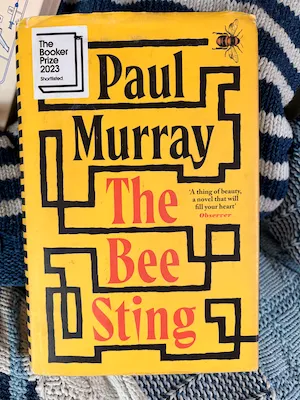math-o-ween
here’s an interesting bit of decision making mathematics from john bethencourt at the university olf wisconsin. it’s wrapped up in the story that there are forty thousand people wanting to celebrate an event on a choice of three nights. each person asks all of his or her friends each day what day they think the celebration ought to take place on and then when they are asked themselves they give the answer that they found was most popular when they asked yesterday.
the results are that the large group will come to a 95% majority verdict on one on the three dates after only nine days if they have each have between four and eight friends to consult with each day. the time to reach a 95% single opinion takes longer and longer the fewer friends each person has. if each person only consults one or two others then it takes a stonkingly long time for any one of the three days to emerge as a majority verdict. it also takes a lot longer if there are more choices of dates.
a couple of comments of my own:
a) students at the university of wisconsin must be remarkably staid lot compared to those at the college i attended. three choices of day to celebrate halloween on? go for all three! (the only halloween parties i’ve ever been to were as an undergraduate and a brownie, positions which have more in common than i care to think about too deeply.) “most people do not typically get drunk during the week” wasn’t halfway true in my experience.
b) i’d be interested in seeing how this bit of maths plays out with a couple of variations. if the large majority of the people stay as they were before and consult a handful of friends but a very small number of super socialites consult a large number of people (like 20 or 40 and perhaps a different set each day) my guess would be that the majority opinion would emerge very much faster. if the regular people weighted these super socialites opinions over those of their regular friends then i would expect the convergence to be faster still. i think that’s the way these kind of decisions work in real life. also, i’d like to play with the numbers and see if a group of single minded super socialites (who always say the same date when asked no matter what they hear from the people they ask) could inflict their choice of date on everyone else. that smacks of the kind of thing that happens in real life to me too.
[found via boing boing’s guestbar which doesn’t seem to have permalinks (or archives which explains it)]









